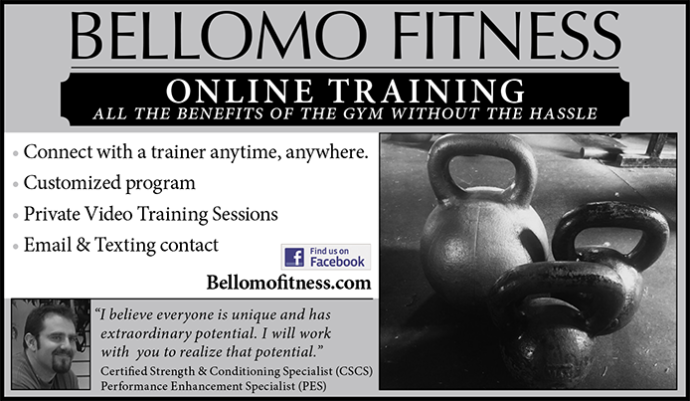I have been asked recently what exactly the differences are between a health coach, a wellness coach, and a personal fitness trainer, so I thought I would take this opportunity to explain these terms and how they all relate to wellness. I think it is an interesting discussion as, with almost 30 years in this field, I have witnessed the birth of these terms and have also seen their definitions change over time.
Years ago, when I was completing my undergraduate degree and taking my first certification via pencil and paper (I know I’m getting old), the terms wellness coach and health coach did not exist, and fitness training was not particularly considered a true profession.
After a couple of years of working in gyms, I was offered my first directorship of a corporate fitness center at the headquarters of a major bank. The company decided to call the facility a wellness center, as they wanted to be seen as offering something that was of a higher caliber than just a place to work out. I was able to bring in other professionals to offer programs such as health screenings and skin cancer exams, and we would frequently put together programs such as corporate fitness challenges, along with the standard group exercise classes and personal training. However, by today’s standards, this would not have been considered a wellness center but instead a fitness center that offered some wellness programming. Though my title was wellness director, I would have been considered a glorified personal trainer.
Not too long after, still, with the same agency, I was offered another post on the other side of the city. The facility I was to manage was also termed a wellness center and, though it still functioned primarily as an exercise facility, aimed to be much more. One of the people I reported to was the head of human resources and, in a prior position, had worked for a large pharmaceutical company. He put together a committee that included me that was tasked with determining if having fit employees was actually good for business and if they ultimately impacted the company’s bottom line by reducing health care premiums. The answer seems pretty obvious these days, but the actual evidence of cost savings had not been clearly proven at that time.
So, the committee put together a series of employee screenings that looked at things such as body fat percentage, total cholesterol, blood glucose, whether the employee smoked, and other health factors. The metrics were taken twice annually from thousands of employees. After five years of collecting data, the conclusion was yes, there was a financial benefit to the company, but it was complicated as it was still hard to prove. This was around the time that the term wellness was really gaining popularity and was an umbrella for overall preventative health programming. Also, during this time, the term health coaching was born.
Today, wellness programming is fairly standard with larger companies and insurance plans, and it consists mainly of health education and screenings. Research has made it abundantly clear that healthier employees cost much less to insure than unhealthy ones. To lower insurance premiums, as well as look after valuable human resources, employers are offering programs that are similar to what I helped pilot almost three decades ago. During this time, it was discovered, however, that in addition to basic health education, participants needed motivation and accountability, so health coaching has become quite popular. Unfortunately, most of these programs offer little or no fitness instruction and leave that to other facilities.
So, what’s the difference between a wellness coach, a health coach, and a fitness trainer? Health coaching tends to be focused on behavioral modification and revolves around the health education of things such as smoking cessation, diet, exercise, and improved sleep.
Wellness coaching is a bit different, however, as it deals with more of the mental health and spiritual well-being of its participants. Wellness coaches may address things such as mental, emotional, social, environmental, occupational, intellectual, and financial well-being in addition to physical health. Occasionally wellness and health coaching are combined, and the professional is termed a health and wellness coach.
Last, fitness trainers focus on customized fitness programming and implementation for individual clients and actually take their clients through a workout. While fitness trainers have been around for well over one hundred years, as I have stated in previous articles, the profession has only been popularized in the last few decades, where most trainers now hold a 4-year degree.
All three specialties have their own certifying organizations, although no licensure is required by law. This means that anyone can call themselves a wellness coach, health coach, or fitness trainer. This is made further confusing in that all three groups have some similarities and overlap in job duties. So, make sure you thoroughly vet whichever professional you decide to go to for help and make sure that they have not only professional experience but also a formal education.
I am personally interested in all three specialties and currently act as all three at one point or another throughout the week. In addition to writing this column, my primary job is as a wellness professional for a health system. I am responsible for health screenings, teaching health classes both in-person and online, attending community health fairs, and assisting with community programs such as flu vaccination clinics.
One of my duties is also health coaching, where I help people make lifestyle changes to manage chronic conditions such as diabetes better. My secondary job is as a fitness trainer, something I have done for almost 30 years, where I design and help implement customized fitness programs for individual clients. People will contact me through various means, such as a referral from a friend who has previously trained with me, or another trainer may connect me with a client with more complicated health issues than they feel comfortable working with.
We then start out with a conversation. I ask about their health history, possibly asking for clearance from their primary doctor. I then take them through a light workout either in-person or via video conference. From there, I create a customized, flexible program to fit their goals and fitness level and usually work with them three days per week. We also set dietary and other fitness-related goals to work on. The idea is that the program evolves as they do. So, I would be considered both a fitness trainer and a health coach. In addition, in the last several years, I have developed an interest in the spiritual side of well-being. I have been exploring wellness coaching or holistic health, sometimes called ‘wholistic’ health.
So, with all of this overlap, the best solution to finding a professional to fit your needs is first to make a list of everything that you feel you need. This might include things such as weight loss, motivation, and health education, or it might be more of a spiritual and mental health nature. From there, do your research, look up professionals online, check their credentials, ask for referrals, and have a conversation. If it is the right fit, you’ll probably know it by the end of the first phone call.
For more information about fitness and wellness or if you would like to connect with Dave, find him online at bellomofitness.com or check out Bellomo Fitness on Facebook.





Leave a Comment
Your email address will not be published. Required fields are marked with *